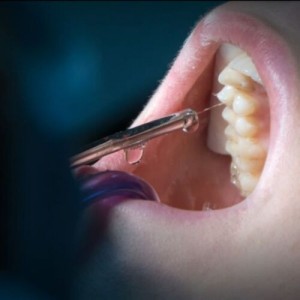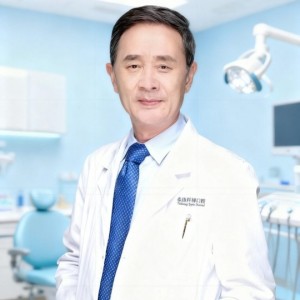
Osteointegration of titanium implant in patients treated with antiangiogenic targeted chemotherapy
Lara Figini
Recent advances in dental implants have led to an increase in the number of patients treated, with survival rates of more than 95% in a healthy population. More and more frequently dental implant are performed in elderly subjects or in people who have undergone chemotherapy treatments for cancer. Traditional chemotherapy is characterized by a lack of selectivity for tumor cells, that can may lead to drug resistance or result in systemic toxicity. Recently, better targeted treatments, which depend on monoclonal antibodies (mAb) that bind to specific targets on the surface of tumour cells, have been introduced. These differ from traditional treatments as they target cancer cell apoptosis by blocking oncogenic pathways and restricting angiogenesis.
These new chemotherapy drugs, thanks to their selectivity, guarantee fewer side effects, however, require longer treatment times than the traditional ones. But the antiangiogenic targeted chemotherapy can affect the osseointegration of dental implant?
Materials and Methods
In an in vitro animal study, published on British Journal of Oral and Maxillofacial Surgery February 2019, the authors examined the effect of targeted anti-angiogenetic chemotherapy on the osseointegration of titanium implants. Fourteen white rabbits were allocated randomly into two groups of seven: the placebo control group and the Avastin® group. Animals in the Avastin® group had five doses of bevacizumab intraperitoneally (3 mg/kg/week). The first was given two days before the implant was inserted and the remaining four were given weekly for four weeks. One titanium implant was inserted in the right distal femoral condyle of each rabbit. Osseointegration of the implants was measured using microcomputed tomography (CT) and histomorphometric evaluation.
Results
Both microcomputed tomography and histomorphometric evaluation showed less osseointegration in the Avastin® group than in the controls.
Conclusions
From the data of this study, which must be confirmed with other similar studies and in clinical trials in humans, it can be concluded that the pharmacological inhibition of angiogenesis by bevacizumab can negatively influence the osseointegration of titanium implants on animals.
Clinical implications
The dentist have to take into consideration that in cases of implantology in patients in therapy or recent undergoned with chemotherapy-targeted antiangiogenic drugs, the osseointegration can be negatively affected by the intake of bevacizumab specifically.
For additional informations: Effect of antiangiogenic targeted chemotherapy on the osseointegration of titanium implants in rabbits.
Italian version: http://www.odontoiatria33.it/implantologia/17721/osteointegrazione-di-impianti-dentali-in-pazienti-in-cura-con-i-recenti-chemioterapici.html
 Related articles
Related articles
Oral surgery 22 August 2025
Thiel embalming technique: a valuable method for teaching oral surgery and implantology
Because of its high requirements on surgical experience and the need of complete understanding of the anatomy, oral surgery and especially implantology belong to the most demanding procedures in...
Patients with a history of head and neck cancer resection require extensive prosthodontic rehabilitation following cancer treatment.
News 24 June 2025
The global Dental Soft-tissue Regeneration Market, valued at US$0.36 billion in 2024, stood at US$0.38 billion in 2025 and is projected to advance at a resilient CAGR of 6.8% from 2025 to 2030,...
Implantology 05 May 2025
Patient-Centered Outcomes in Implantology: Satisfaction, Functionality, and Quality of Life Measures
This study aimed to investigate the patient-centered outcomes of implant dentistry, focusing on satisfaction, functionality, and quality of life measures.
Implantology 13 February 2025
Digital workflow is increasingly accessible in daily dental practice. It has several benefits in implantology, such as the possibility of precise planning, which results in faster and safer surgery...
 Read more
Read more
Editorials 10 October 2025
With proud smiles and crisp white coats, ninety-three learners from the DDS Class of 2029 and the International Dentist Pathway Class of 2028 marked the start of their dental careers at the UCSF...
Periodontology 10 October 2025
Continuous professional development (CPD) in Periodontology refers to the overall framework of opportunities that facilitate a life-long learning practice, driven by the learner-practitioner and...
TheraBreath, the #1 alcohol-free mouthwash brand in the U.S.*, has introduced a new line of dentist-formulated, clinically tested toothpastes designed to support professional oral care...
News 10 October 2025
New officers and trustees were installed at the Minnesota Dental Association’s Leadership Conference on September 19 in Minneapolis.
News 10 October 2025
Smartee Denti-Technology today announced that Professor Gang Shen, its Chief Scientist and Executive President of TaiKang ByBo Dental, has once again been named to the World’s Top 2% Scientists...















